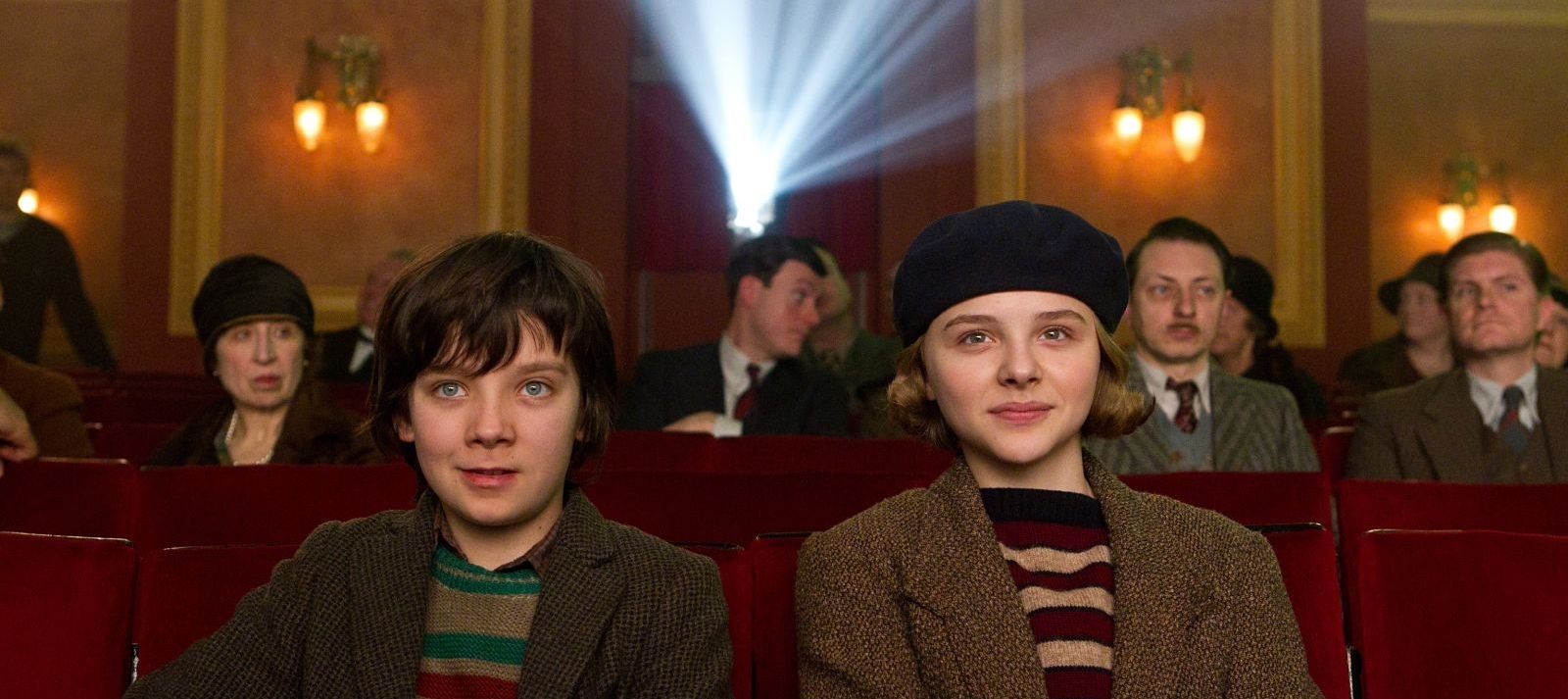
MPAA Rating: PG | Rating: ★★★★★
Release year: 2011
Genre: Adventure, Family, Fantasy Director: Scorcese
Hugo is unlike any Martin Scorsese film you’ve ever seen. This is the guy who made Taxi Driver, Raging Bull, Goodfellas, and The Departed. All are masterpieces. None could be considered “feel-good” movies. Hugo is something new. It is a love letter to the cinema itself, both in the story it tells and how it was crafted. “Come, dream with me,” is an invitation given in the climactic moment of the film. The summons could be from Scorsese himself.
Hugo is set in a Parisian train station in the 1930s. I’ve actually walked through the exact station, coming in on a train from Frankfurt and entering the wondrous world of Paris. Like another whimsical film this year, Woody Allen’s Midnight in Paris, the city of lights is a place of journeys into the imagination. Train stations are places of interlude in between adventures. The titular character is a young boy living in the walls of the station. Orphaned after his inventive father was suddenly killed in a fire, Hugo spends his days fixing the station’s clocks and tinkering with an automaton his father left behind. Something about the automaton beckons to him like a message beyond the grave. He is a bright, resourceful boy who must navigate his own pain and loneliness like the vast labyrinth of corridors inside the walls.
Hugo is caught stealing by a lonely toymaker, Georges Melies, whose grumpy demeanor hides years of underlying pain. Only film enthusiasts will recognize Melies’ name; the rest of the audience will be pleasantly surprised by Hugo’s discovery. Melies’ confiscation of Hugo’s notebook–his father’s–begins an ordinary adventure that leads both Hugo and Georges to wrestle with their pasts and find hope for the future. Georges’ godfather, Isabelle, helps Hugo retrieve his notebook. She introduces Hugo into the beautiful world of literature; Hugo returns the favor by sneaking her in to view her first film. Books and movies are the source of imaginative exploits and epics in Hugo; they are the places where dreams come to life.
In a conversation between Hugo and Isabelle, Hugo ponders his own existence: “I’d imagine the whole world was one big machine. Machines never come with any extra parts, you know. They always come with the exact amount they need. So I figured, if the entire world was one big machine, I couldn’t be an extra part. I had to be here for some reason.” Hugo wonders if Georges’ depression is because of his brokenness, that his part in our world has been marred by a past wound. Our meaning and purpose must be connected to a greater masterpiece that is being created. The great Artist has crafted each of us for a good purpose. For we are his workmanship, created in Christ Jesus for good works, which God prepared beforehand, that we should walk in them (Ephesians 2).
A film set in one of my favorite cities in the world? A film that maturely celebrates both literature and cinema? A film that features fantastic storytelling, top-notch acting, a wonderfully cathartic happy ending without any sense of being overly sentimental, and the best use of 3D in a life action film I’ve yet seen? A film that is filled with redemption of broken machines and people, offering light and life in our dark world? Consider Hugo a new personal favorite.
IMDB Listing: http://www.imdb.com/title/tt0970179/